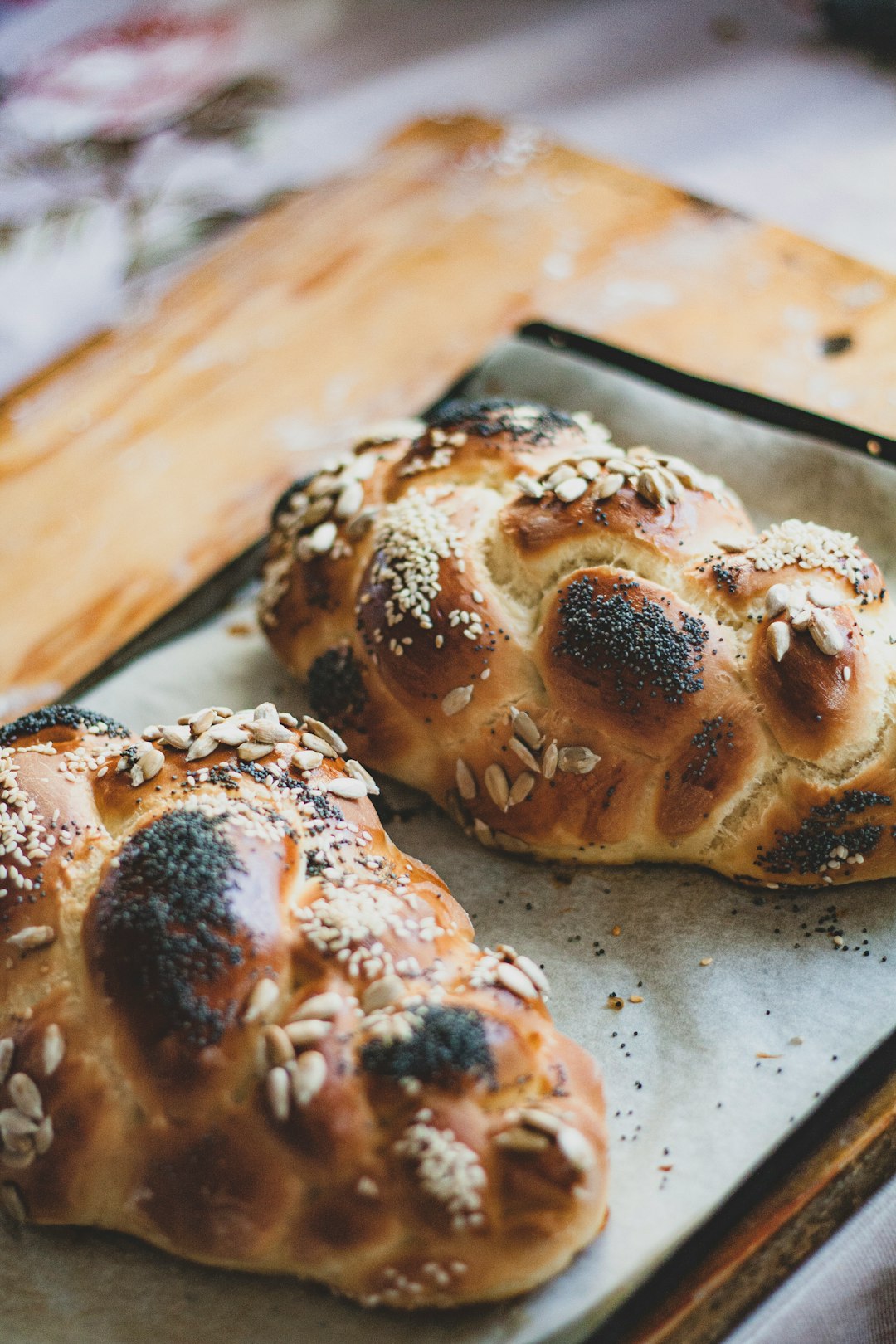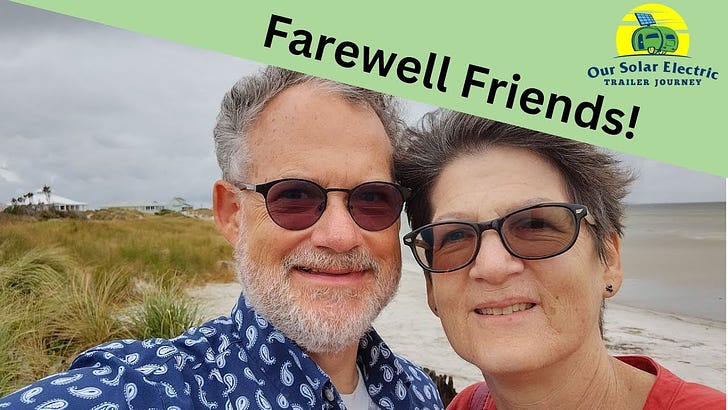When you purchase an item after clicking a link from this post, we may earn an affiliate commission.
Our friends Jay and Hilda Meyer live just down the street from us. As members of the Orthodox Jewish community, they keep kosher strictly, even when camping in their RV. They shared insights with us about following their faith and observing the Sabbath.
Keeping Kosher
Most gentiles are familiar with kosher basics like avoiding pork, but may not appreciate all that keeping kosher requires.
For instance, food and its containers must be keep meat and dairy strictly separate. Plates, pots and silverware is used only for meat (including anything with meat) or only for dairy (including anything with dairy). Food that contains neither, including eggs, grains, fruits and vegetables, is neutral or “pareve.”
Hilda labels every drawer and cupboard in the RV with a D, M or P. All of the items are dedicated to use with only corresponding food.
“I have to do a lot of planning,” Hilde says. “I have recipes about that deep [holding her hands to suggest a foot-tall stack] on a single page where I bring with me so that I can cook whatever we need.”
“I'm lucky that I have a two-well sink so that I can use one for dairy, one for meat,” she adds. The strict separation means that dairy and meat are never served at the same meal. She can clean up from a meal using only the correct side of the sink.
“I have three burners so I can make whatever I need to here,” she says of her stove. She has color-coded handles on the implements she uses to cook. “Blue is dairy, green is pareve and the red is meat.”
Hilde and Jay have two toaster ovens. One for cooking meat dishes and one for dairy. “We're now all the time carrying dairy and meat, so we just switch them out,” Jay says. “The cab-over serves as a storage area for the bigger appliances.”
Hilde keeps the kitchen linens separate. “I have separate wash cloths, dishcloths dish towels. So, I wash my items, whatever is dirty, dry them and put them away right away so that I don't have to worry about mixing anything up.”
“For people to keep a kosher home, this, I think, is not as difficult as it sounds to the uninitiated because they're already living the experience,” Jay says. “All they're doing is transferring to a much smaller venue and learning to adjust and go without when necessary.”
Keeping kosher begins with buying kosher food. “There are hundreds and hundreds and hundreds of kosher products on almost every grocery shelf,” Jay says. “You don't know it, but we know it because they carry little symbols that we look for.”
“Kosher meat is very expensive,” Jay says. “They're not found in a lot of supermarkets that are situated in an area where they don't have a Jewish population because the meats are more expensive and people, if they're not Jewish, they would just walk by when they see the prices.”
“We take whatever we can for frozen foods and we work down that inventory,” Jay says. They stock up when they “get to an area where we think there might be a kosher section in a supermarket.”
Sabbath Observance
Observing an orthodox Shabot, Shabbos or Sabbath may seem complicated to other folks, but habits, priorities and patterns allow Hilde and Jay to take it in stride.
“There are electric restrictions, electricity restrictions,” Jay says. “The restrictions make people think that we live in the dark. We don't live in the dark. The restriction is that you cannot initiate electricity, you can't flip a switch.”
“Liquids create a problem on the Sabbath,” he says. :If they're cold, we have rules where you really can't take a cold liquid and put it into a hot crockpot because that can be construed as cooking.”
The secret is to start cooking before the Sabbath. “If you put it in before the Sabbath starts and you let it sit overnight, that's fine,” Jay says. “We do this all the time.”
That guides what they eat on the Sabbath. “I don't use milk-based soup or cream-based soup because 36 hours is too long for that to sit,” Hilde says. “A lot of soups I can put in the crock pot.”
“In the summer, I make a lot of salads like macaroni salad or something like that,” she adds.
“We have a bread called challah,” Hilde says. “I make that usually once a month and we use three rolls and I make rolls because a whole loaf of bread is too much for the two of us.”

They keep the Sabbath and the rest of their religious observance even on the road in their Sunseeker motor home. “There's a lot of sanctification to bread and to wine, all of which we take with us,” Jay says.
“A lot of these units, ours included, have two motion sensors, a motion sensor on the step by the door and a motion sensor on the floor in the bathroom,” he says. “At night, it would activate that. We can't do that on the Sabbath.”
Jay has a solution. “To alleviate that problem, I just cover it with tinfoil and masking tape. Then it doesn't go on.”
Another strategy for Sabbath observance is their strategy for hot water. “We have a big urn,” Jay says. You always have plenty of hot water. So and that goes from before sunset, Friday till after sunset Saturday.”
“At the conclusion of the Sabbath, we have the evening service. It's called Havdalah,” he says. “It's a ceremony that lasts two, three, four minutes where we light candle. We say prayer. We have wine. We say a prayer and we have spices. We say a prayer. They all have significance.”
“When we're done with that, the Sabbath is over,” he concludes.
Mezuzah
“Mezuzah is a Hebrew word, translated into English means door post,” Jay says. “So, it says in the Bible that you should put this on your door post of your home.”
“Some people think it's a good luck charm,” he says. “It isn't a sign intended to be good luck. It's a reminder that we have a Jewish home. It's a reminder that we have a creator higher than us and that this is not our house; it's his. And we need to behave and act accordingly in our lives. So we put that on the door.”
The mezuzah contains a small scroll of animal parchment on which scripture has been handwritten.
After planning some long trips, Jay found vital guidance. “If you're going to live in this [RV] for more than 30 days, you are required to have a mezuzah on the door.”
















